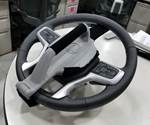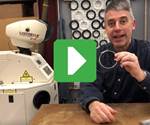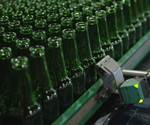3D-Printed Tooling at Volkswagen Autoeuropa
A video illustrates how the automotive manufacturing facility is using Ultimaker 3D printers to dramatically reduce the time and cost of developing jigs, fixtures and manufacturing aids.
A recent blog post on this site made the point that while additive manufacturing may not be practical for the mass production of automotive parts, 3D-printed tooling—jigs, fixtures and the like—holds significant promise for this industry. The video below illustrates this perfectly, showing how Volkswagen Autoeuropa is using its seven Ultimaker 3D printers to create custom tooling.
The automotive manufacturing facility, located in Portugal, specializes in new car models, producing 100,000 cars per year. Since integrating its Ultimaker 3 and Ultimaker 2+ 3D printers, the plant has reduced its tool development time by 95 percent. In 2016, the plant printed 1,000 parts and saved $160,000; in 2017, that figure is expected to increase to $200,000.
Other benefits that Volkswagen Autoeuropa has gained from this approach include:
- The flexibility to employ a trial-and-error strategy in developing manufacturing aids, something that was impractical when working with external suppliers.
- Ergonomic improvements to manufacturing aids as a result of continuous operator feedback (and the freedom to respond to this).
- Reduced tool lead time, condensed from weeks to days.
- The ability to adjust designs or replace worn parts of tools without scrapping the entire tool.
Related Content
-
Video: AM for Harder, Longer-Lasting Brake Discs
Additive manufacturing is being applied to limit automotive brake dust. For a major automaker, Etxetar and Talens are developing a production-speed directed energy deposition system to give brake discs a precise layer of wear-resistant carbide.
-
IndyCar's 3D Printed Top Frame Increases Driver Safety
The IndyCar titanium top frame is a safety device standard to all the series' cars. The 3D printed titanium component holds the aeroscreen and protects drivers on the track.
-
BMW Expands Use of Additive Manufacturing to Foster Production Innovations
The BMW Group is manufacturing many work aids and tools for its own production system using various 3D printing processes, with items such as tailor-made orthoses for employees, teaching and production aids, and large, weight-optimized robot grippers, which are used for such things as carbon fiber-reinforced polymer roofs and entire floor assemblies.

.jpg;width=70;height=70;mode=crop)










